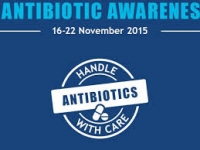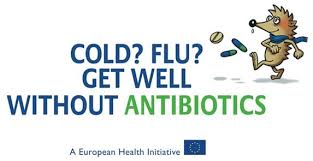World Antibiotic Awareness Week
Tuesday 17 November, 2015 Written by Simon Collyer/Chris Lane
This week marks the first ever World Antibiotic Awareness week (16-22 November 2015) with an emphasis on the need for us to consider antibiotics as a precious resource, rather than an everyday medicine.
Clinicians are saying say antibiotics are not the answer for many common conditions. They do not work on colds or for most coughs, sore throats, ear ache or flu. The body can usually fight these infections on its own.
World Antibiotic Awareness week also falls within Self Care Week – a national initiative aimed at encouraging everyone to look after themselves and to use local pharmacists to treat common ailments such as colds or sore throats.
The ABC points out: People on low incomes are potentially more subseptable to becoming ill due to food poverty and must take cae not to abuse the taking of Antibiotics for everyday illnesses we all get from time to time.
Source: Thanks to Chris Lane, Communications officer, North East Essex Clinical Commissioning Group for the tip.

More NHS Health Tips
- Colds – to ease the symptoms of a cold, drink plenty of fluids and try to rest. Steam inhalation and vapour rubs can also help. Prevent colds from spreading by washing your hands thoroughly, cleaning surfaces regularly and always sneeze and cough into tissues, throwing them away after use.
Find out more about treating colds
- Sore throats – a sore throat is almost always caused by a viral infection, such as a cold. Try not to eat or drink anything that’s too hot, as this could further irritate your throat; cool or warm drinks and cool, soft foods should go down easier.
Find out more about treating sore throats
- Asthma – a range of weather-related triggers can set off asthma symptoms, including cold air. Covering your nose and mouth with a warm scarf when you’re out can help.
Find out more about treating asthma
- Norovirus – this is also known as the winter vomiting bug, although it can cause diarrhoea too. The main thing to do to is drink plenty of water to avoid dehydration. You can also take paracetamol for any aches, pains or fever.
Find out more about treating norovirus
- Flu – if you’re 65 or over, have a long-term health condition such as diabetes or kidney disease, flu can be life-threatening, so it’s important to seek help early. However, if you’re generally fit and healthy, the best treatment is to rest, stay warm and drink plenty of water.
Find out more about treating flu
1 comment
-
Comment Link
 Tuesday 17 November, 2015
posted by
Simon Collyer
Tuesday 17 November, 2015
posted by
Simon Collyer
Leave a comment
Make sure you enter all the required information, indicated by an asterisk (*). HTML code is not allowed.
Join
FREE
Here










